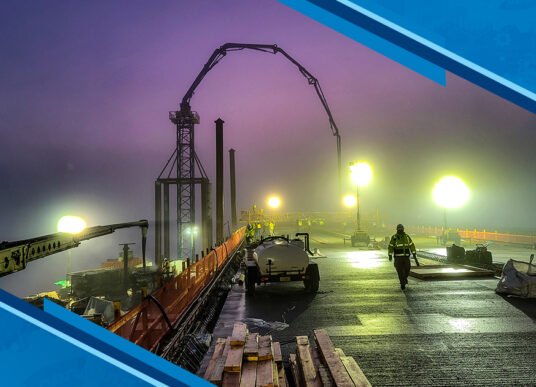
By Jeff Tan, PE, CCM, PMP, LEED AP
Practice Leader
Construction Management
Artificial intelligence (AI) has steadily transformed industries across the board, and construction management is no exception. As projects demand heightened efficiency and precision, integrating AI-driven tools has become a strategic necessity. Rather than resisting this technological evolution, forward-thinking firms are leveraging AI to optimize workflows, improve decision-making, and support overall project outcomes.
Enhancing Documentation and Inspection Efficiency
Documentation is the backbone of construction management consulting. Accurate, detailed daily reports are essential for preventing claims, resolving disputes, and protecting clients. However, many inspectors, whose primary role is to oversee construction quality control, struggle with report writing. This can result in missing details, inconsistencies, and additional time spent on paperwork instead of fieldwork.
Within my department, we’ve fine-tuned AI prompts to assist inspectors in generating comprehensive, high-quality reports. The impact has been significant:
- Report preparation time has been reduced from one hour to just 10 minutes per day.
- Average errors and missing details have dropped from 10 per report to just two.
By assisting with report writing, AI allows inspectors to focus on ensuring construction quality, addressing on-site issues, and proactively managing risks.
Streamlining Project Management
This technology can also act as a real-time project assistant, providing inspectors and managers with critical information at their fingertips. Instead of spending time manually searching records, AI can instantly retrieve:
- New submittals, RFIs, and change orders – With these easily accessible, inspectors can ensure they have the latest project updates.
- Deficiency reporting – AI can help inspectors draft detailed, structured communication, providing clear explanations of violations and required corrective actions.
- Standard drawings and specifications – Rather than continually sifting through thousands of pages of regulations, AI allows inspectors to ask vague or partial questions and delivers relevant answers instantly.
Beyond inspections, AI can also significantly improve contract administration processes by enhancing communication for clarity and accuracy, automating progress meeting summaries, and providing schedule and cost analyses to support decision-making.
Balancing Automation with Expertise
Despite its strengths, AI can sometimes fabricate data or generate misleading conclusions based on incomplete information, making human judgment critical. Professionals should always verify AI-generated outputs before submitting reports or communicating with clients, cross-check critical details to prevent misinformation, and remember that AI is an assistant, not an authority. Our team continually seeks better ways to utilize this technology, recognizing that mastering effective prompts and training AI for specific needs takes time and effort.
Embracing the Future of Construction
As AI technology continues to evolve, construction management professionals have an opportunity to innovate and drive efficiency. Firms that proactively adopt AI solutions will gain a competitive edge by optimizing workflows, reducing inefficiencies, and delivering high-quality outcomes. With this in mind, my team and I are committed to adapting to this transformative technology. By empowering our employees with AI-driven solutions, we are helping to set a new standard in construction management.
Discover how our AI-driven expertise can support your projects by visiting KCI’s Construction Management services page.



